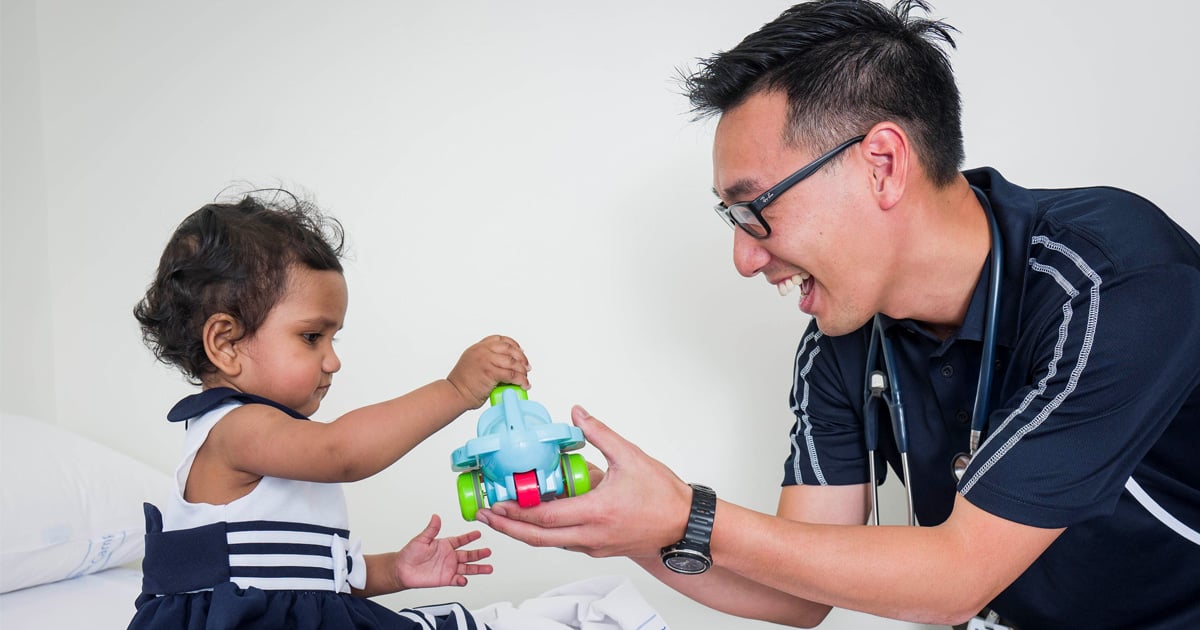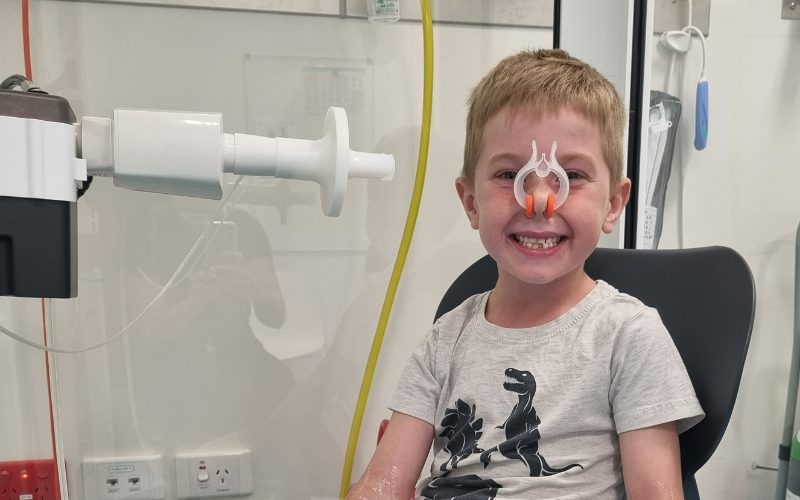Search
Showing results for "early childhood"

News & Events
Concern for toddlers as low iron levels affect one in threeA third of Western Australian one-year-olds and up to two thirds of three-year-olds have low iron, a study by The Kids Research Institute Australia has found.
Research
Introducing the ORIGINS project: a community-based interventional birth cohortNon-communicable diseases (NCDs) pose the greatest threat to human health globally. The dramatic rise in early onset NCDs - such as childhood obesity, the allergy epidemic and an increasing burden of mental ill health in children and youth - reflect the profound early impact of modern environments on developing systems.
Research
Parents on the Concept of Physical Literacy: What Do They Know, What Do They Do, and What Do They Want?Physical literacy development in early childhood, viewed by many as the foundation for lifelong physical activity engagement, is significantly influenced by parents. Our aim was to explore parents' understanding of physical literacy and gain insight into their perspectives on physical literacy promotion.
Research
Association between preschooler movement behaviours, family dog ownership, dog play and dog walking: Findings from the PLAYCE studyPhysical inactivity in childhood is a major public health issue. Dog ownership has been widely reported to lead to greater physical activity in adults and school-aged children. We examined if dog ownership and dog-facilitated physical activity were associated with higher physical activity in preschoolers. Secondary analysis of the 'Play Spaces & Environments for Children's Physical Activity' (PLAYCE, 2015-2018) study involving 1366, 2-5-year-olds from 122 long day-care centres in Perth, Australia was conducted.

News & Events
New study to determine if it’s safe for children born preterm to attend day careA new study to determine if it’s safe for children who were born preterm to attend day care officially commenced this month.
Research
TESTOV PneumoChristopher Elke Jennifer Tom Blyth Seppanen Kent Snelling MBBS (Hons) DCH FRACP FRCPA PhD BSc PhD RN BMBS DTMH GDipClinEpid PhD FRACP Centre Head,
Research
Content Validation of Clinician-Reported Items for a Severity Measure for CDKL5 Deficiency DisorderCDKL5 deficiency disorder (CDD) results in early-onset seizures and severe developmental impairments. A CDD clinical severity assessment (CCSA) was previously developed with clinician and parent-report items to capture information on a range of domains.
Research
Epigenetic dysregulation of host gene expression in Toxoplasma infection with specific reference to dopamine and amyloid pathwaysOur results provide a possible functional link between Toxoplasma gondii infection and congenital/early life and adult neurological clinical signs
Research
Vagus nerve stimulation for the treatment of refractory epilepsy in the CDKL5 Deficiency DisorderOur study suggests that vagus nerve stimulation is a generally safe and effective adjunct treatment for CDKL5-associated epilepsy
Research
Caregiver Perspective of Benefits and Side Effects of Anti-Seizure Medications in CDKL5 Deficiency Disorder from an International DatabaseCDKL5 deficiency disorder presents as a challenging condition with early-onset refractory seizures, severe developmental delays, and a range of other neurological symptoms. Our study aimed to explore the benefits and side effects of anti-seizure medications in managing seizures among individuals with CDKL5 deficiency disorder, drawing on data from the International CDKL5 Disorder Database.
